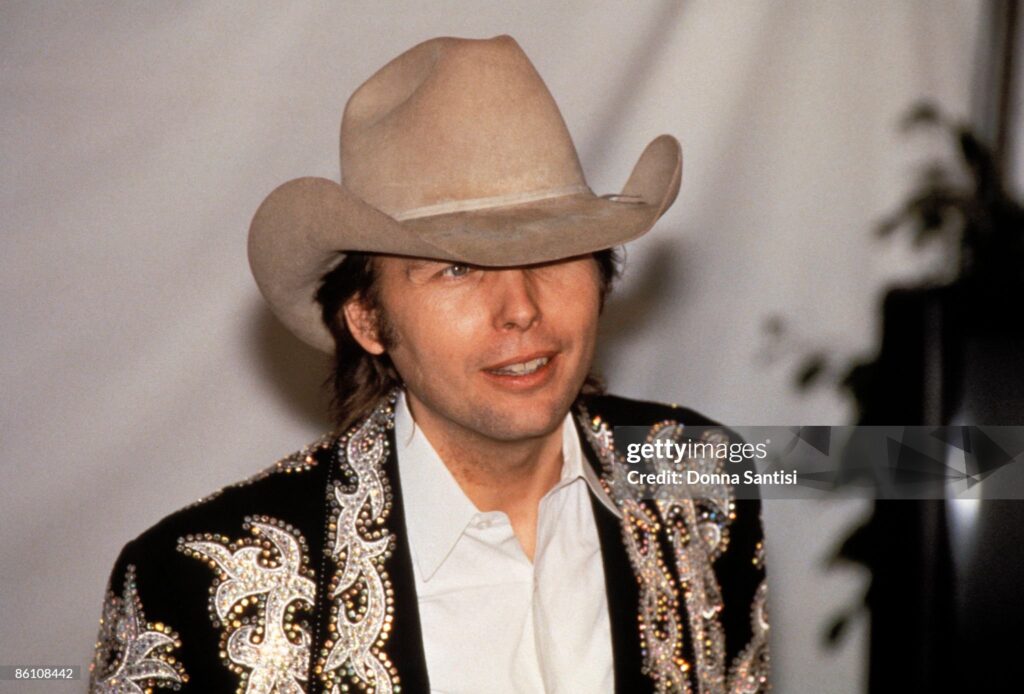
A last call turned prayer — neon winks out, the jukebox breathes, and a stubborn heart asks the town for mercy.
Put the bedrock first, because the facts anchor the feeling. “Close Up the Honky Tonks” was written by Bakersfield songwriter Red Simpson and first recorded by Buck Owens & His Buckaroos, cut on June 10, 1964 and released the following month on Owens’s Capitol LP Together Again/My Heart Skips a Beat. The lyric’s plea is plain as a courthouse notice—shut the bars, lock the doors, don’t let her find a new love under those lights—and it quickly joined the Bakersfield canon that shaped a generation.
Decades later, Dwight Yoakam carried that same plea into his own voice. He put “Close Up the Honky Tonks” on his all-Owens tribute, Dwight Sings Buck, released October 23, 2007 by New West. Yoakam produced the album himself, stretching this track to a slow-burn 6:24—a marathon by honky-tonk standards—and, as critics noted, he leaned into a percussion-heavy, unhurried arrangement that lets the ache show through the groove. It wasn’t a charting hit, but it was the emotional fulcrum of the record: the place where respect becomes possession, where a singer doesn’t just cover a classic—he inhabits it.
There was, for a moment, a bid to put this sorrow on the airwaves. In the summer of 2007, the track was flagged as the album’s lead single, and Yoakam even filmed a video—directed, with a wink of cross-genre fate, by Fred Durst—that set his stoic delivery against a roomful of dancers who know exactly what a long night can take from you. Single or not, the song’s real life was always onstage and in kitchens, played a little too loud while someone washed the same plate twice.
For older ears, Yoakam’s version lands like a testimony sworn under a barlight. He honors Buck Owens by keeping the bones—telecaster twang, clean lines, the proud austerity of the Bakersfield sound—then slows the pulse until the lyric’s simple fantasy grows human: if the doors were only shut, I might not lose her. It’s a fool’s hope, of course; love doesn’t answer to city ordinances. But country music has always given dignity to those little legal fictions the heart writes at closing time, and Yoakam understands the ritual: sing it slow, let the drummer leave space, and listen to what the silence after the chorus is trying to tell you.
Part of the song’s power is its wide family tree. Beyond Owens and Yoakam, the tune traveled through country-rock’s bloodstream; The Flying Burrito Brothers made it a Gram Parsons showcase, and there’s a reason a 1974 two-LP compilation of their work borrowed the title for itself. The phrase itself—“close up the honky tonks”—became a kind of folk proverb, a way of naming that impossible wish to control desire by dimming the lights. Hearing Yoakam sing it, you can hear the roomful of ghosts behind him: Bakersfield steel, Laurel Canyon harmonies, the backroads where country and rock traded cigarettes and stories.
If you listen closely to Yoakam’s cut, you’ll notice how the arrangement respects breath. The drums don’t hurry; the bass walks like a man who knows every crack in the sidewalk; the guitars glow more than they bite. Over that, Yoakam leans into the vowel sounds the way Owens once did, but his timbre is duskier, a little more road-worn—the sound of a witness rather than a plaintiff. The extra minutes aren’t indulgence; they’re witness-time, the space needed to confess that jealousy often dresses itself as civic virtue: if they closed those places, I could be a better man. It’s tender, and just self-aware enough to be honest.
And the meaning? On the surface, it’s a barroom injunction. Beneath, it’s the oldest country parable going: we try to legislate what only courage can change. That is why this version sings to people who have already lived a few lifetimes under neon. Dwight Yoakam doesn’t sermonize; he stands at the hinge of the door and tells the truth most of us are slow to say—that blame is easier than bravery, and that the heart will always find a place to make trouble, even if the bartender kills the lights.
So place “Close Up the Honky Tonks” where it belongs in Yoakam’s story: not as a radio trophy, but as a devotion. He salutes Buck Owens and the Bakersfield grammar, yes, but he also writes his own margin note: slow it down, let the room breathe, and give grown feelings the time they deserve. In that extra space, the song becomes less a plea to shutter the town and more a quiet ask of oneself—close up the alibis, hold the line, let love be braver than habit. On certain nights, that’s all a song needs to do.